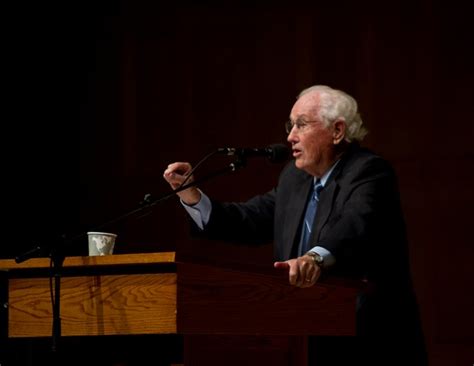A Quote by Slavoj Žižek
Atheism is not the denial of the existence of God, but having doubts as to whether God is conscious.
Related Quotes
An atheist, like a Christian, holds that we can know whether or not there is a God. The Christian holds that we can know there is a God; the atheist, that we can know there is not. The Agnostic suspends judgment, saying that there are not sufficient grounds either for affirmation or for denial. At the same time, an Agnostic may hold that the existence of God, though not impossible, is very improbable; he may even hold it so improbable that it is not worth considering in practice. In that case, he is not far removed from atheism.
To become conscious of God, to become God's consciousness, to become God, to be God and to be beyond God, God being beyond God, God having an existence separate from the creation, to be that, to merge with that, to lose one's self and find one's self endlessly again and again in that is self-realization.
No it's not!" said Constable Visit. "Atheism is a denial of a god." "Therefore It Is A Religious Position," said Dorfl. "Indeed, A True Atheist Thinks Of The Gods Constantly, Albeit In Terms of Denial. Therefore, Atheism Is A Form Of Belief. If The Atheist Truly Did Not Believe, He Or She Would Not Bother To Deny.
Some say Christianity is just a crutch. But let's turn the question on its edge for a moment. Is atheism an emotional crutch, wishful thinking? The ax cuts both ways. Perhaps atheists are rejecting God because they've had a bad relationship with their father. Instead of inventing God, have atheists invented non-God? Have they invented atheism to escape some of the frightening implications of God's existence? Think about it.
Let me tell you that atheism has never painted a masterpiece. Atheism has never dispelled fear. Atheism has never healed a disease; faith in God has, but not atheism. Atheism has never given anyone piece of mind. Atheism has never dried a tear. Atheism has never given an intellectual answer to the creation. Atheism is bankrupt and empty; it's brain dead.
What do you conceive God to be like? Some would say to believe at all in a personal God requires a giant leap of faith - but I am convinced that belief in God is a far more reasonable position than atheism. Nature, the personal experience of literally billions of people, and something innate in the heart of man all testify to the existence of God.
Obviously, if theism is a belief in a God and atheism is a lack of a belief in a God, no third position or middle ground is possible. A person can either believe or not believe in a God. Therefore, our previous definition of atheism has made an impossibility out of the common usage of agnosticism to mean "neither affirming nor denying a belief in God."
But they that hold God to be [an incorporeal substance]do absolutely make God to be nothing at all. But how? Were they atheists? No. For though by ignorance of the consequence they said that which was equivalent to atheism, yet in their hearts they thought God a substanceSo that this atheism by consequence is a very easy thing to be fallen into, even by the most godly men of the church.
As to the Christian system of faith, it appears to me as a species of Atheism — a sort of religious denial of God. It professes to believe in a man rather than in God. It is a compound made up chiefly of Manism with but little Deism, and is as near to Atheism as twilight is to darkness. It introduces between man and his Maker an opaque body, which it calls a Redeemer, as the moon introduces her opaque self between the earth and the sun, and it produces by this means a religious, or an irreligious, eclipse of light. It has put the whole orbit of reason into shade.








































